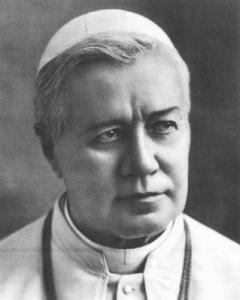Legalising Drugs? Part One
On occasion of Bishop Francis reiterating his opposition to liberalisation (making freely available) or legalisation (making available in certain circumstances) of drugs, yours truly has thought well to express his opinion on the matter.
There was a time (before I went back to be a practicing Catholic) when I thought a certain brand of legalisation, then pushed rather hard in Italy, was the way to go.
Broadly, what found my approval was the following proposal: light drugs like Marijuana remain illegal, with attentive enforcement; severe sanctions against not only drug dealers and pushers, but drug users remain in place; but those whom a MD certifies to be addicted can get their drugs at usual ticket price, with the normal – and very efficient – controls already in place for already legalised drugs like, say, morphine (whose medical use is common in Italy).
The thinking behind this is brutally simple: making every kind of ingress in the drug world heavily sanctioned (say: screwing hard the one found in possession of drugs), but avoiding to society the massive social cost of those already addicted (if you lived in Italy in those years, you knew the vast amount of small criminality, generally car breaking, caused by drug addicts; criminality that is “small” for the statistics, but directly affects the daily lives of one whose car is broken, or the old woman whose purse is taken away, or the constant threat of attack of one’s property).
Drugs being dirt cheap in the production, this would have had the following effects:
1) cut away the source of income for drugs dealer, whose clients would have been utterly screwed if found in possession of the dealer’s drugs, but once become addicted could have marched to a doctor and obtain a prescription for, say, $6.00 a day in today’s money. Basically, as a drug dealer you work for nothing. The dealer is here like a salesman whose clients can go away any time paying one twentieth of the price for a better product, after he had the expense and the huge risks to build the client base.
2) free the police force from the huge work involved in fighting against drugs-induced criminality and dedicate the resources to other ends (mafia and the likes come to mind; or illegal immigration; take these two away, and Italy is a very quiet country).
3) drastically improve the quality of life of the non drug addicts, whose lives were, at least in all big cities, daily impacted by the invasive, drug-induced criminality.
4) drastically reduce the further societal costs of drug addiction, from the damage caused by all the breaking – and at times vandalising – to the costs for the justice system (at the end of the Eighties in Italy drug addicted and illegal immigrants made around 90% of the jail population).
This was not a good-ist approach. It wasn’t the brainchild of bleeding hearts thinking the idiot who takes drugs is a “victim” (no he isn’t; he is an irresponsible idiot, period). It was a very practical approach to a problem at that point influencing the lives of millions.
The dividends of such a policy appeared reasonable, immediate, directly changing the lives of millions of hard-working, law-abiding citizens (again, the “poor drug addict” rhetoric was just not there: you throw yourself from a roof, you smash yourself into the ground) and promising not only to give the idiots a half-way normal life, but to the non-idiots who were the victims of the first an entirely normal one. All this not only at no-cost, but at a huge net benefit in economic and broad social terms.
Seems fine, doesn’t it?
Well, it isn’t.
To be continued… (Please wait before commenting).
Mundabor
Posted on July 26, 2013, in Catholicism, Conservative Catholicism, Traditional Catholicism and tagged Drug addicts, Pope Francis. Bookmark the permalink. Comments Off on Legalising Drugs? Part One.




















